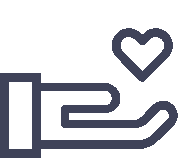
WELCOME TO OPEN ARMS COMMUNITY
CONNECTIONS . COLLABORATIONS . COMMUNITIES.
A Vehicle for Empowerment
“There is immense power when a group of people with similar interests get together to work towards the same goals.” – Idowu Koyenikan
COMMUNITY AND ACADEMY AT A GLANCE
Growth Starts Within
Open Arms Community Leaders Inc. knows that our strength lies not only in the words we stand by, but most importantly through the actions of our initiatives. In 2020, our organization realized that by working together, we could overcome our challenges much more efficiently, and that is why we ultimately decided to launch our nonprofit organization.
Who Are We?
We are an organization that promotes intellectual and spiritual wellness in communities through learning and practice. We believe that the community is the backbone and foundation from which all things are birthed. We believe is supporting communities from a place of genuine love and care for others.
.jpg)

Communities are comprised of individuals with unique qualities and attributes. In order to build strong communities, each individual must focus on and strengthen self which includes mind, body, and spirit.
PERSONAL ATTRIBUTES
COMMUNITY ATTRIBUTES
Individuals within a community make up the fabric of that community. The characteristics and essence of a community lies within its foundation and the growth and development of a community lies with its members. As the essence of individuals is mind, body, and spirit; there is also a mind, body, and spirit essence of a community. Open Arms Community Leaders is an organization that functions as a community to promote community wellness.

Community Members
Body
The members are the body of our organization. Our members believe that everyone is capable of being their best selves and experiencing life to the fullest. Love is the greatest commandment and with love at our core, we welcome people from all walks of life. There is no judgment here. We are a community who support each other in our development as we journey to know more about our true essence. We love unconditionally as we transform ourselves from the inside, out. All are welcome!
Community Academy
Mind
The academy is the mind of our organization. We see every challenge as an opportunity to grow, and our initiatives help communities build at a foundational level. This includes having access to class and course offerings that encourage personal development and empowerment.
Open Arms Community Leaders offers a wellness curriculum to summer camps, after school programs and Saturday classes for families. This curriculum includes mindfulness and emotional mastery, breathwork for stress and energy balance, and meditation for clarity and focus.


Community Development
Spirit
Most of our efforts pertaining to our organization involve supporting values of development in communities. We believe that all members of a community must first positively transform themselves in order to have a positive, lasting impact on their communities. Our efforts entail working with other organizations to ensure the basic needs of all
members are met and there is equal opportunity for education and individual potentiality.

